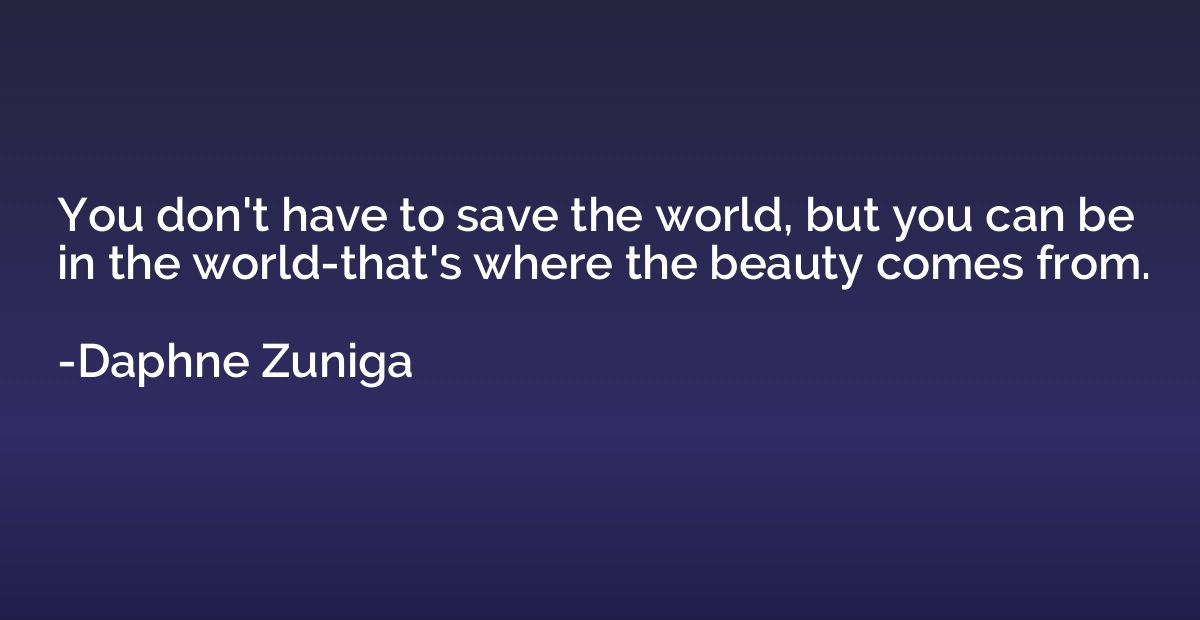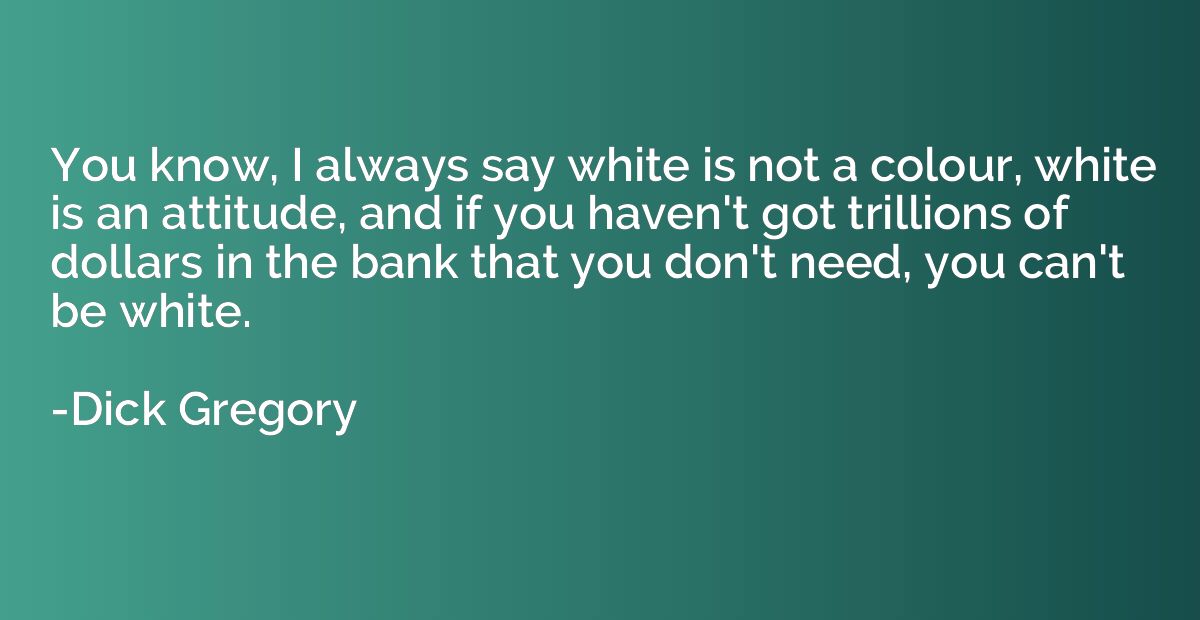Quote by Daphne Zuniga
You don't have to save the world, but you can be in the world-that's where the beauty comes from.

Summary
This quote suggests that one does not need to bear the burden of saving the entire world, but instead should focus on being an active participant in it. It implies that by simply being present and engaged in the world, one can experience and appreciate the beauty that surrounds them. It highlights the idea that the small contributions and experiences we have can make a meaningful impact, without the need for grandeur or saving the world as a whole.














